Pipeline Simulation
Short Course

The Pipeline Simulation Interest Group regularly holds its popular 2 day Pipeline Simulation Short Course (PSSC). Typically the course is held just prior to the PSIG conference to facilitate attendance of both the short course and the conference. The course consists of 6 classes each focusing on an aspect of pipeline simulation and is taught by industry experts. Specific details of the course, cost, schedule, etc. are provided when the conference registration opens.
A typical PSSC outline is given below:
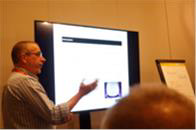
Fluid Properties
Dr. Jon Barley
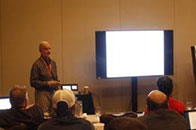
Real-Time Systems and Leak Detection
Ed Nicholas
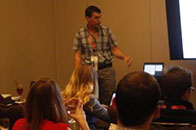
Pipeline Flow Equations
Dr. Jason Modisette

Compressor Station Modeling
Dr. Cody Allen
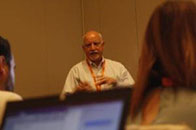
Multiphase Flow in Pipelines
Dr. Ivor Ellul

Natural Gas Pipeline and Operations Planning
Jonathan Fasullo, Melissa Debevc
“This course really reinforced my understanding of fluid fow principles.”
Fluid Properties by Dr. Jon Barley
The Fluid Properties course is delivered on the first day of the short course to introduce the attendees to the fundamental principles of fluids. The course material takes the attendee through basic definitions such as density, viscosity, heat capacity, heating value and states of matter. The course discussion continues to discuss gases and liquids, their properties, and the equations of state. The gas chapter discusses the position of gas on the phase diagram; properties of gases; development of the ideal gas law and the difference between ideal and real gases; real gas density; defining gas mixtures; and empirical methods to predict real gas densities, viscosities and specific heat capacities. The liquid chapter discusses properties of liquids including the position of liquid on the phase diagram; properties of liquids; liquid density; empirical methods of predicting liquid densities, viscosities and specific heat capacity. Non- Newtonian fluids and liquid mixing are included as topics of discussion.
The course proceeds to discuss the general, cubic and virial equations of state and vapour – liquid equilibrium. The course concludes with discussion on fluid property calculators and simulation including accuracy, formulation, computational effort and how to improve performance.
Pipeline Flow Equations by Dr. Jason Modisette
The Pipeline Flow Equation course introduces the attendees to the Bernoulli equation, the concept of enthalpy and how to apply the Bernoulli equation to a pipeline. The Conservation Laws including the general form, mass conservation and momentum conservation are discussed. The course moves on to discuss Energy Conservation including kinetic energy, gravitational potential energy, intermolecular forces and the Joule- Thomson effect. Friction in the pipeline consists of topics including viscosity, stress, laminar and turbulent flow, the Moody diagram, friction factors, the smooth-pipe / rough pipe transition and modelling the laminar – turbulent transition. The thermal environment includes topics of steady- state conduction, transient conduction with cylindrical symmetry and convection effects. The numerical methods of modelling discussion includes direct integration of steady state, methods of characteristics, and the Finite Difference Method including i) explicit, implicit and semi-implicit methods ii) choice of boundary conditions, iii) handling the nonlinearities, and iv) single network vs independent leg models. Other topics of discussion include pipe expansion and batches and compositional changes.
“I enjoyed the lecturer’s ability to discuss the application of pipe simulation tools in their professional careers.”
“The presenters have very strong technical knowledge and the class has a good balance of theoretical and practical material.”
Mulitphase Flow in Pipelines by Dr. Ivor Ellul
The Multiphase Flow in Pipelines course discusses the challenges presented by the concurrent flow of two or more fluids in a pipeline. The course commences with a historical perspective of the origin of, and need for, multiphase flow analysis. Empirical methods are presented and the phenomenon of flow regimes introduced. The more popular empirical correlations are presented and briefly discussed. The mechanistic formulation is then introduced incorporating the determination of flow regimes and their effect on the calculation of pressure drop and liquid holdup. The approach will also include the critical effect of pipe inclination. The dynamic two-phase equations are subsequently derived as a set of closed- form conservation relationships that make up the two-fluid model with closure being achieved using appropriate sub-models for interface and other effects. The course will continue with the chemical and thermal hydraulic aspects of flow assurance, as well as multiphase-driven corrosion. In conclusion, all analysis will be design integrated and applied.
Real-Time Systems and Leak Detection by Ed Nicholas
The course will start with some working examples for pig and commodity tracking, hydraulic analysis, water balancing and leak detection. The course continues with a review of the limiting uncertainties including fluid properties, temperature and properties of pipeline surroundings and measurement factors. Real time pipeline modelling paradigms and dealing with bad and missing data will be discussed.
The course will then move into leak detection discussing leak detection fundamentals and performance expectations including: 1) The false security of the normal distribution. 2) API 1149 usefulness and limitations. 3) What do flow meter accuracy specifications really mean? 4) Estimating real world performance and what causes false alarms and the cures for the false alarms.
The course will conclude with a discussion on smarter time systems including building on the basics, looking at all the data together, systems that learn from the data and expert systems. The instructor will finish the course with their recommendations, conclusions and reflections.
“The information and notes provided are a great reference.”
Compressor Station Modeling by Dr. Cody Allen
The Centrifugal Compressor course starts by introducing attendees to the general principles of gas compression. Next it moves into working principles of centrifugal compressors and provides an overview of components within the compressor. Once a basis of principles has been established, the course moves into operational characteristics and sizing of centrifugal compressors. The course concludes with
a presentation of real-life data and discussion on modeling complexity as it relates to various applications of centrifugal compressors.
Natural Gas Pipeline and Operations Planning by Jonathan Fasullo, and Melissa Debevc
The Natural Gas Pipeline and Operations Planning short course will aim to review the basic principles used by hydraulic engineers to determine and troubleshoot the flow of gas in gathering, transmission and distribution pipeline networks. Planning engineers typically work with commercial teams & operational personnel to: design, expand, manage, and report pipeline hydraulic capacity; provide operational support to allow system maintenance and efficient operations; and increase overall system efficiency on their various natural gas pipeline systems.
The course will review the main sections of a traditional Pipeline Planning department including: Facility Planning, Operations Planning, & System Design. Each section requires specific tactics and methods to achieve desired quantitative results. These methods will be expanded on, allowing the attendee to logically solve the flow of gas from receipt to delivery and understand the input required to arrive at a viable solution.
Exceeds expectations! Enjoyed!
Pipeline Simulation Short Course Presenter Biographies

Dr. Jon Barley
Jon Barley is Director, Research and Development at Emerson – Energy Solutions, now part of Emerson Automation. He began his career in the oil and gas industry in 1989 at the BP Research Centre in Sunbury developing 3D reservoir simulators for modelling enhanced oil recovery. In 1992 he joined Energy Solutions International (formerly Scientific Software– Intercomp) working in the Pipeline and Facilities division. During his tenure he has worked on fluid property and pipeline simulation software, delivered on-line real time pipeline management systems, undertaken various pipeline engineering consulting studies and provided internal and external training and support on all aspects of pipeline simulation. Jon received a Bachelor’s degree in Mathematics from the University of York in 1985 and a PhD in Computational Fluid Dynamics from the University of Reading in 1989. He is a Chartered Mathematician through the Institute of Mathematics and its Applications and holds the position of Vice Chairman of the board of the Pipeline Simulation Interest Group.
Dr. Jason Modisette
Jason Modisette is Chief Scientist at ATMOS International, Inc. in Anaheim, California. He has been developing pipeline software since 1997, including online and offline models, optimizers, leak detection systems, and other applications for both gas and liquid pipelines. Jason received a B.S. in Physics from the California Institute of Technology in 1992 and an MS and PhD in Physics from Rice University in 1995 and 1997. He is a member of the board of the Pipeline Simulation Interest Group.
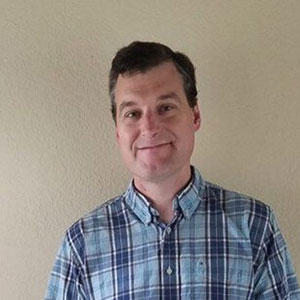
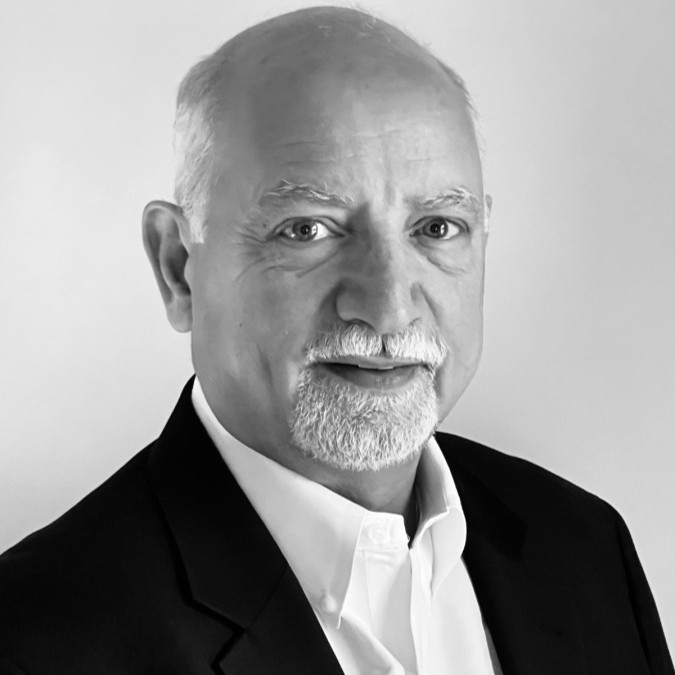
Dr. Ivor Ellul
Ivor Ellul began his career in the oil and gas industry in West Germany, as a design engineer on pipeline, storage tank, and refinery systems. After specializing in the modeling of multiphase flow in pipelines, he worked for a number of years in the area of numerical modeling of single and multi-phase pipelines under steady-state and transient conditions. He has been involved in various pipeline simulation studies for clients worldwide. Ivor was industry lecturer to the Petroleum Engineering Department of Imperial College, London where he lectured the MS course on pipeline and process engineering. He served as an advisor on the board of the Faculty of Petroleum Engineering of the University of Houston. He presides as chairman of the board of the Pipeline Simulation Interest Group and served as Regional Director of the Society of Petroleum Engineers. Ivor is a Chartered Engineer in the United Kingdom and a registered Professional Engineer in the state of Texas. He received a BS in Mechanical Engineering from the University of Malta, and MS and PhD degrees in Petroleum Engineering from Imperial College, London.
Ed Nicholas
Ed Nicholas has been designing, implementing, and supporting real time pipeline modeling applications for 35 years. He managed simulation development at CRC Bethany, Real Time Systems, and Scientific Software-Intercomp before branching out as Nicholas Simulation Services in 1995. He led the development of and currently provides primary support for the leak detection system of the Trans-Alaska Pipeline. His primary clients have been Koch Industries, PRCI, Sacramento Municipal Utility District, Alyeska Pipeline Services Company and Enbridge Pipelines. Ed received a BS in physics and mathematics from Houston Baptist University and a MS in applied physics from the California Institute of Technology.
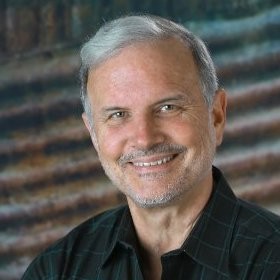

Dr. Cody Allen
Dr. Cody Allen is a Consulting Data Scientist in Solar Turbines’ Solar Digital group. Dr. Allen joined Solar Digital in 2015 as part of the Analytics team where he researched and developed algorithms to detect and predict unplanned shutdowns for gas turbines. In 2019 he began working on pipeline simulation and optimization in partnership with Solar’s Gas Compressor and Systems Planning groups and is currently the technical lead in Solar Digital for pipeline simulation and optimization. He joined the PSIG Board of Directors in late 2021. Cody received a B.S. in Investment Finance from Northern Arizona University in 2008. He received a M.S. in Applied Mathematics from San Diego State University in 2015 where he was awarded the Graduate Mathematics Excellence award. He then worked concurrently at Solar while attending the University of California, San Diego. He received a second M.S. in 2018 and Ph.D. in 2020, both in Mechanical Engineering with emphasis in Control and Optimization Theory. He was awarded the Robert E. Skelton Systems and Dynamics Dissertation award upon graduation in 2020.
Melissa Debevc
Melissa Debevc is a Specialist Engineer in the Underground Storage Planning department at Enbridge Gas Inc. She began her career in the gas industry in 1998 at Union Gas Limited (now part of Enbridge Gas Inc) in Chatham, Ontario, Canada. She has 25 years of experience in both distribution and transmission Planning and has recently transitioned to Underground Storage Planning. She specializes in hydraulic modeling for both steady state and transient scenarios to support design day and day to day utility operations. Melissa holds the position of Secretary/ Registrar of the board of the Pipeline Simulation Interest Group. Melissa is a licensed Professional Engineer in Ontario, Canada. She received a Bachelor of Applied Science (Honours) in Civil Engineering from the University of Windsor, Ontario, Canada in 1992.


Jonathan Fasullo
Jonathan Fasullo is currently a Staff Engineer at Kinder Morgan in Houston, Texas. He began his career 16 years ago with CenterPoint Energy Gas Transmission supporting well connects and hydraulic design. After gaining experience, his responsibilities shifted to an operations planning role where he collaborated in developing a forecasting modeling methodology to optimize and prioritize short term opportunities & scheduled maintenance on the pipeline. Jonathan’s experience in system design at Columbia Pipeline/TransCanada allowed him to model the Buckeye Xpress project filed with the FERC in 2018. BXP is a 70-mi, 275 million cubic feet per day pipeline expansion through central and southern Ohio. He is currently working on optimizing compression on the Tennessee Gas Pipeline system in support of the recently announced EPA Good Neighbor conditions. Jonathan holds a B.S. in Mechanical Engineering from Louisiana Tech University in Ruston, Louisiana and currently sits on the board of the Pipeline Simulation Interest Group as Treasurer.